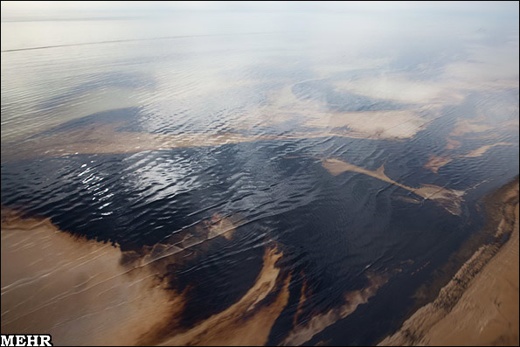The biological and chemical methods used around the world to clean up oil slicks at sea often have negative effects on the marine ecosystem and at times are ineffective. Researchers at a science and technology park in Hormozgan Province have recently used three plants native to Iran to work out an environment-friendly solution to dealing with the issue.
On February 25 the Iranian Students News Agency quoted Dr. Maziyar Mohammadzadeh, who is in charge of the project, as saying, “The three indigenous plants have undergone slight changes to be converted to nano-filters for the removal of oil spills. Palm and Asclepias, native to Hormozgan, along with another plant indigenous to Isfahan Province have been used in the project.”
He described the physical absorption of oil spills as a property of the plants and said, “The final product can float in water and remove contamination from saline, brackish and fresh water.”
The product does not interfere with ecosystem, Mohammadzadeh said, adding, “Because the product is derived from plants, after decontamination, it can be used as fuel in industries and bakeries.”
